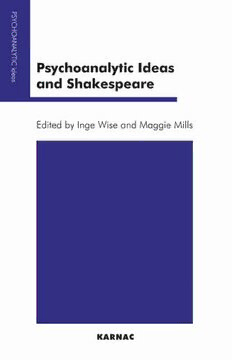
Psychoanalytic Ideas and Shakespeare (Psychoanalytic Ideas Series) PDF
155 Pages·2006·0.598 MB·English
Most books are stored in the elastic cloud where traffic is expensive. For this reason, we have a limit on daily download.
Preview Psychoanalytic Ideas and Shakespeare (Psychoanalytic Ideas Series)
Description:
Psychoanalysis is concerned with the vicissitudes of life: loss, grief, mourning, guilt, and also with reparation and creativity, with death and rebirth--as is the work of Shakespeare. In today's world we are moved by Shakespeare's plays because these themes are brought to life with a richness and creativity that has not dimmed with the passing of time. Echoing Freud's fascination with Shakespeare, the contributors find much to feast on in King Lear, Twelfth Night, All's Well That Ends Well, The Tempest, Macbeth, and The Winter's Tale. They weave an enticing thread, linking the bard's universe to psychoanalytic thought and practice, and show us how much both worlds have in common. The interplay of inner and outer world, and inner and outer reality, brings about a rich tapestry of conflicts, desires, anxieties, challenges, and resolutions that were as true then as they are now. Throughout his life and reflected in his plays, Shakespeare faced loss and death repeatedly. That his creativity was not diminished but rather enriched by this fact, is part of his genius. Loss and the thought not just of death, but also of our own death is something we all have to struggle with, as do the patients whose conflicts the authors speak about.The Contributors: Peter Buckroyd, Michael Conran, Peter Hildebrand, Maggie Mills, Inge Wise, and Gerald Wooster.
See more
The list of books you might like
Most books are stored in the elastic cloud where traffic is expensive. For this reason, we have a limit on daily download.
